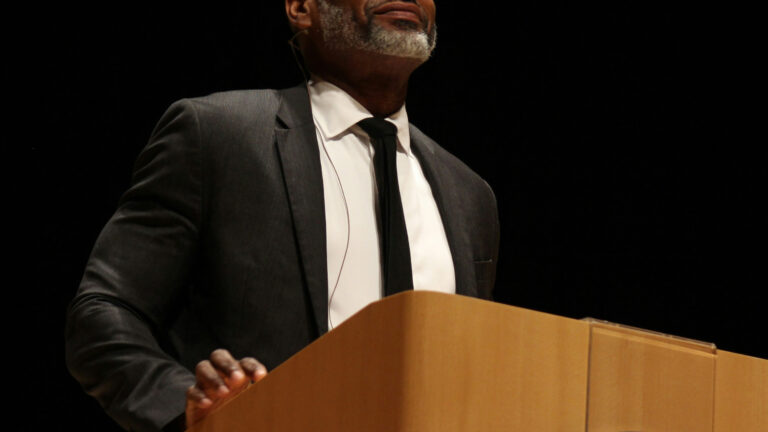Why do we know so little about Africa’s role in the Reformation?
Well, in sub-Saharan Africa it’s commonplace to believe that Christianity only came to Africa with the colonial waves of the 16th and 17th centuries. Of course, this would be too late for Africa to have had any impact on the Reformation (which kicked off 200 years previously). Thus we quickly conclude that Africa has had no part to play in the development of the Reformation at all.
This would mean that anything ‘Reformed’ on the continent has only ever been an import, rather than an export. It’s time to set the record straight.
Africa’s Role In The Reformation
So many believe that the historic Reformation and Reformed theology came to Africa in the hands of white colonialists claiming to be missionaries. We might even believe that Africa is the continent that Jesus forgot. For it seems that Christians didn’t bother trying to evangelise our continent until it profited them in the age of colonialism.
Africa has always played a major role in the story of the Christian faith.
But nothing could be further from the truth. The Reformation was a unique moment in the history of the Christian faith. It was a watershed moment, destined to impact the universal Church for centuries to come. It was the Reformation ‘revival’ that led to a great missionary age (c. 1500-1800), when many Reformed missionaries arrived on African shores.
However, this was not the first time Christianity had come to Africa. It’s been here since the beginning of the Church. It’s even been here since the time when Jesus and his apostles walked the earth.
The Christian faith is not Western. It’s not European. And Africa has always played a major role in the story of the Christian faith. Indeed, we can see the influence of Africans on the early church, which indirectly would be significant for the Reformation too.
African Christians In The New Testament
Examining the New Testament, there are three characters that we very easily overlook: Simon of Cyrene, Apollos, and the Ethiopian eunuch. Here are a few quick facts about these men.
Simon of Cyrene
Cyrene was a small colony located in what is now eastern Libya. When talking about Simon, the Gospels even include a note about his children, Alexander and Rufus (Matthew 27:32; Mark 15:21; Luke 23:26). This makes it likely that these two had converted to Christianity by the time the Gospels were being written.
It seems quite likely that Ethiopia has the oldest Christian faith in Africa.
Apollos
Next up is Apollos. I can hear people raising their eyebrows: what about Apollos? Well, a small detail you might miss in the book of Acts, is that he came from Alexandria (Acts 18:24). Yes, Alexandria was the major city in Egypt. Apollos was a companion of Paul, preaching and teaching the gospel around the Mediterranean, especially in Corinth and Ephesus.
The Ethiopian Eunuch
Thirdly, we have the Ethiopian eunuch. To this day, a large portion of the Church in Ethiopia claims that this man was its original founder. Acts 8 tells his story. This eunuch was reading through Isaiah when Philip encounters him. According to Church tradition, this eunuch then took his newfound belief back to his people and to the queen of the Ethiopians. Because of this, it seems quite likely that Ethiopia has the oldest Christian faith in Africa.
Woven Into Christian History
From these three examples we see Africans playing some pivotal roles in the growth and development of early Christianity. One carried the cross for Jesus. Another preached the gospel and pastored churches in the Mediterranean. The third, converted by the teaching of an apostle, brought the good news about Jesus to Africa. Those are very important things to note. We should remember those people.
Africa’s first experience of Christianity was not at the hands of European colonialists and missionaries.
So, no, Africa’s first experience of Christianity was not at the hands of European colonialists and missionaries. Our first experience of this wonderful news that God’s King has risen from the dead to defeat death and evil was in carrying the cross for that king. An African carried the news all around the Mediterranean. Another African brought the news from Roman Israel to our beautiful continent in Ethiopia. Thus we can agree that Africa had some role in the early formation and spread of Christianity. But, enough dancing around, what about Africa’s impact on the Reformation?
It was African bishops that told the Roman Pope Zosimus to get in line when he sided with the Pelagian heresy. This was an incredibly important moment in early Church history and the later Reformation. Not only that, the writings of a good number of African theologians and early Church fathers were a contributing influence in the writings of the Reformers.
7 African Christian Influencers
Here’s a select list of some African theologians that the Reformers interacted with and developed in their own writing:
- Tertullian of Tunisia (then Carthage), who wrote about a wide range of theological issues but is perhaps most remembered for his apologetics and polemics, exploring Christianity and culture.
- Athanasius of Alexandria was crucial the the development of the early church’s Trinitarian theology. In the Arian controversy he defended the Son’s divinity.
- Augustine of Algeria (then Hippo) is arguably the most significant theologian in the early church.
- Aurelius of Tunisia (then Carthage) emphasised teaching new Christians, played a role in the monastic movement, and established an early seminary for Christians in his monastery.
- Clement of Alexandria engaged with Hellenistic philosophy and encouraged Hellenistic communities to adopt Christianity.
- Cyprian of Tunisia (then Carthage) contributed significant pastoral writings and focused on the body of the church.
- Origen of Alexandria boasts a comprehensive literary corpus. Much of it is devoted to exegesis, homiletics, and textual criticism.
These men all lived within the first five centuries of Church history. Therefore they influenced many of our beliefs today, for the Reformers were extensively exposed to their works and relied on them in their own writings. Luther and Calvin, two of the most famous Reformation thinkers, were significantly influenced by three men from Africa: Athanasius, Augustine, and Tertullian. This influence can be seen explicitly in quotations from those early Church fathers. And it can also be traced back to those theologians’ shaping of the early Church’s theology.
Shaping The Reformation
When you read many of the Reformers, you will be reading the thoughts of Africans. But what about a direct, historical impact? Sadly, there wasn’t nearly as much of a contribution from African theologians at the time of the Reformation. The reasons for this are tragic and ongoing. The reason African Christians did not make as much impact on the Reformation when it happened was because of their ongoing conflicts, both cultural and militant, with the Islamic presence that had become dominant in so much of North Africa.
When you read many of the Reformers, you will be reading the thoughts of Africans.
But that’s okay, because it was the writings of Africans, the theological work of Africans, the heart and soul of Africans, that helped shape the Protestant Reformation as well as the people that spearheaded it.
The question now is, what are we doing with that legacy? Are we, as the current custodians of the gospel message in Africa, staying true to the early Church fathers? Are we faithfully shepherding the Reformed Church in Africa today? Are we staying true to Reformation principles and sharing the good news? Join me as we dig into these questions further in this second article: The Reformed Church in Africa: Have We Got This?














